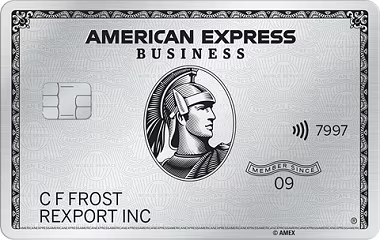Costa Rica presents itself as a nation which combines its natural beauty with its food culture, rich in flavors and diverse traditions. The traditional food of the nation draws its inspiration from various historical influences involving native communities along with Spanish colonization and African traditions.
When visiting Costa Rica you will discover different mouthwatering foods throughout its cities including San José, Guanacaste communities, and rainforest city of Monteverde. The following discussion explores best Costa Rican food together with information about their culinary roots.
Planning to visit Costa Rica?
- Booking Hotels: Booking.com, Agoda, MakeMyTrip and Hostelworld.
- Booking Cheap Flights: Skyscanner and Cheapflights.
- Booking Tours: Viator and GetYourGuide.
- Renting a Car: Discover Cars.
- Travel Insurance: Heymondo. Get 5% off today!
Let’s explore the best Costa Rican food list.
1. Gallo Pinto – The National Dish

Gallo Pinto, which means “spotted rooster,” is a main breakfast fare for Costa Rica. Made with rice and black beans cooked alongside onions, bell peppers, and cilantro, this basic but delicious meal is It is sometimes presented alongside cheese, sour cream, fried plantains, scrambled or fried eggs.
The dish originated in indigenous and Afro-Caribbean cooking customs. It is thought to have been inspired by African rice-and-bean meals imported into the Americas by slaves. It developed over time to be a necessary component of Costa Rican cooking.
For a plate of gallo pinto, budget between $3 and $6.
Where to eat this Costa Rican food:
Although gallo pinto is almost everywhere in Costa Rican homes or restaurants, some of the greatest ones are presented in traditional sodas—small, family-run cafes. Popular venues are Soda Viquez in Alajuela and Soda Tapia in San José.
2. Casado – The Ultimate Costa Rican Meal

Rice, black beans, a protein ( chicken, beef, hog, or fish), plantains, salad, and occasionally a fried egg or tortilla make up Casado, meaning “married” in Spanish.
History: This dish’s name derives from the belief that, with all the components one requires for a healthy diet, a casado meal is as whole as a married life. Workers who needed a nutrient-dense lunch to last them all through the day ate it historically.
Pricing depending on the protein you choose, a casado meal usually runs $5 to $10.
Where to eat this Costa Rican food:
Local sodas and restaurants all around Casado often include this dish. Two famous locations are Soda Tala in Cartago and Restaurante La Casona in Monteverde.
3. Chifrijo – A Bar Snack Favorite

Popular bar snack Chifrijo consists of beans, rice, pico de gallo, tortilla chips and crispy chicharrón ( fried pork rinds) presented in a bowl.
History: Originally developed in a pub, the dish started off in San José in the 1990s. The name combines “frijoles” (beans) with “chicharrón,” (fried pork).
Usually costing between $4 and $8 each serving.
Where to eat this Costa Rican food:
La Criollita in San José and Calle La Amargura in San Pedro feature some of the best chifrijo.
4. Olla de Carne – Hearty Beef Soup

Made with huge chunks of beef, potatoes, carrots, plantains, corn, and other root vegetables, slow-cooked for hours, this is a classic Costa Rican beef stew.
Olla de carne has indigenous and Spanish roots, going back to the colonial era when Spaniards brought slow-cooked stews to the native diet.
Usually costing $7 to $12 each serving
Where to eat this Costa Rican soup:
For a traditional bowl, visit Soda Tapia in San José or Restaurante La Posada de las Brujas in Heredia.
5. Ceviche: a coastal delight.

Made with fresh fish—usually tilapia or sea bass—marinated in lime juice, combined with onions, cilantro, and bell peppers, Costa Rican ceviche is occasionally presented with soda crackers.
History: Indigenous people long before the Spanish arrived, cooking similar marinated fish meals in pre- Columbian times.
Depending on the kind of seafood, you should budget between $6 and $12.
Where to eat this Costa Rican food:
Soda La Teresita in Puntarenas and Marisquería El Pez Dorado in Limón.
6. Pejibaye – The Exotic Palm Fruit

One unusual and healthy staple from Costa Rica is pejibaye, sometimes known as peach palm fruit. Its texture is starchy and it tastes somewhat sweet, nutty. Usually boiled, pejibaye is presented alongside a dollop of mayonnaise or butter.
Indigenous groups in Central America have long grown pejibaye. Given its large calorie count and simplicity of storage, it was a basic food source.
Usually $2 to $5 every serving.
Where to eat this Costa Rican fruit:
Local markets, notably Mercado Central in San José, where merchants offer freshly boiled pejibaye, are the greatest places to locate pejibaye. Street food booths also frequently feature it.
7. Tamales – A Holiday Tradition

Wrapped in banana leaves, tamales—which are maize dough pieces stuffed with pork, chicken, or vegetables—steamed.
Costa Rican tamales have been a mainstay for ages, originating in indigenous Mesoamerican traditions. Christmas and other festive events especially bring them great appeal.
Pricing is about two to five cents each tamale.
Where to eat this Costa Rican food:
Year-round fresh tamales may be found at Mercado Central in San José.
8. Rondon – Caribbean Flavors

Traditionally “run down” with whatever ingredients are available, this Afro-Caribbean cuisine is a coconut milk-based seafood stew including fish, yams, plantains, and spices.
Rondon is much inspired by Jamaican food and started with the Afro-Caribbean community in Limón.
Usually $10 to $15 for each bowl.
Where to eat this Costa Rican food:
The rondon of Restaurante Maxi in Puerto Viejo is well-known.
9. Tres Leches Cake – A Sweet Delight

This well-known treat consists of three kinds of milk—evaporated, condensed, and whole milk—absorbing sponge cake topped with whipped cream.
Price is between three and six dollars a slice.
Where to eat this Costa Rican sweet:
Doris Metropolitan in San José boasts mouthwatering three-leches cake.
10. Agua Dulce – A Traditional Drink

Made from tapa de dulce (unrefined cane sugar) melted in hot water or milk, agua dulce—meaning “sweet water—is a warm drink.
Usually costing, one to three dollars per cup.
Where to eat this Costa Rican drink:
Particularly in rural areas, found at classic sodas and coffee shops.

















